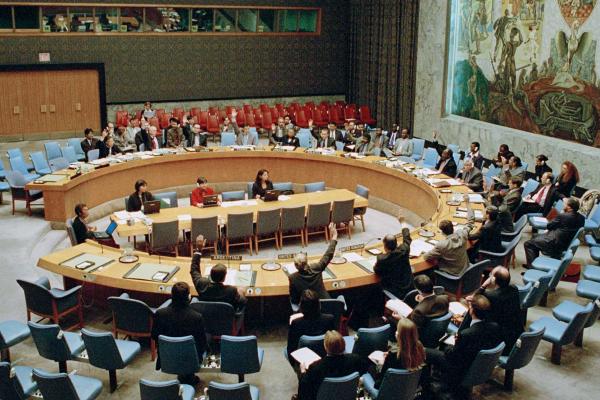Peacebuilding is at the heart of resolving our personal, institutional and societal grievances

Peace and security expert Yasmine Ouirhrane explains how she first became a peace mediator, highlights the obstacles young women face from the MENA region and diaspora, and calls for greater inclusion and co-leadership to revolutionise peacebuilding.
There were many personal experiences that inspired me to become involved in mediation. Firstly, growing up in an Italian-Moroccan family, I experienced many forms of intolerance. These experiences drove me to try and find different ways of dealing with grievances or anger. I found that peace and nonviolence was a better option for me and for society at large.
I have been an activist since I was 16-years-old, this is when I started working in underprivileged neighbourhoods in France. In 2019, when I was recognised for my efforts as the Young European of the Year, I was the target of hate by hundreds of online users including the French far-right leader, Marine Le Pen.
I had to overcome these online attacks by finding the courage to continue to speak up and denounce hatred and by providing a long-term response to structural racism and hate speech.
These experiences helped me realise that mediation is one key component of a larger dynamic of being a young female peacebuilder. My objective in peacebuilding was to bridge the divide that was forming between women and youth peace and security agendas. I was noticing that young women were being marginalised from the women's agenda and the youth agenda at the country level. As a peace and security expert for the AU-EU Youth Hub (The African Union and European Union Youth Hub), I worked alongside other experts from both continents on the development of a digital tracking tool for basic services in the Lake Chad Basin Region. At the Gender Innovation Agora of UN Women Arabic I worked alongside young activists from the MENA region to amplify young women's voices.
Through these processes, and as a diaspora member, I had to listen just as much as I had to engage. This helped me learn more about my own strengths and weaknesses and made me a more effective collaborator. Peacebuilding is at the heart of resolving our personal, institutional and societal grievances, something I feel we need urgently today before we tear each other apart and realise what we have done to one another.
Addressing the systematic exclusion of women in mediation
The peaceful protests in Sudan demonstrated how young women can be drivers of change during a revolution, yet after, those same women are systemically excluded from the negotiation and peacebuilding processes. This is not only because of cultural stigma but a broader unconscious gender bias produced by a patriarchal representation that’s perpetuated amongst European peace mediating institutions.
A recent example of this is the Palermo Conference for Libya organised by the Italian Government in November 2019, where Libyan women’s voices were initially sidelined completely. It is only after the advocacy campaign of my friend and colleague, Hajer Sharief and her Together We Build It youth-led organisation, that Libyan woman leaders were given invitations.
Women face a unique struggle economically, socially, and psychologically. They need to be heard, valued and involved in peacebuilding efforts.
My advice for young women's inclusion into peace mediation
My first piece of advice is to young women like me from diaspora or who are in conflict settings. People are starting to listen - your voice, agency and dignity matters! While change takes time, your actions no matter how small they are can contribute to positive change.
My advice to senior women leaders is to remind them that they are role models to countless young women. As you open the door, hand the key to them or enable them to find the keys and open the doors themselves. Young women must not be marginalised by their role models.
And I have two recommendations:
1) When peace processes begin, establish an inter-generational co-leadership initiative as a necessary platform for engaging ordinary people. This is so they have meaningful ways to shape their peace processes.
2) Establish youth focal points alongside a role for diaspora youth to serve in an advisory capacity to the EU delegations in countries where the EU is involved in a peace process. The cultural sensitivity and the perspective and innovative approaches from young people from the diaspora is an added value that will benefit mediation.
Yasmine is the founder of the We Belong platform and podcast. She is an advocate for Social and Gender Justice in Europe, was recognised Young European of the Year 2019 by the Schwarzkopf Foundation, is an EDD Young Leader with the European Commission, a Women Deliver Young Leader and is a member of the Gender Innovation Agora at UN Women.
As an expert with the AU-EU Youth Cooperation Hub, Yasmin drafted a proposal in tracking basic services in fragile contexts to feed into peace processes, currently under implementation in the Lake Chad Basin Region. Additionally, she has provided recommendations to many other organisations, including EEAS, Foreign Affairs Canada, Union for the Mediterranean and CMI World Bank.






